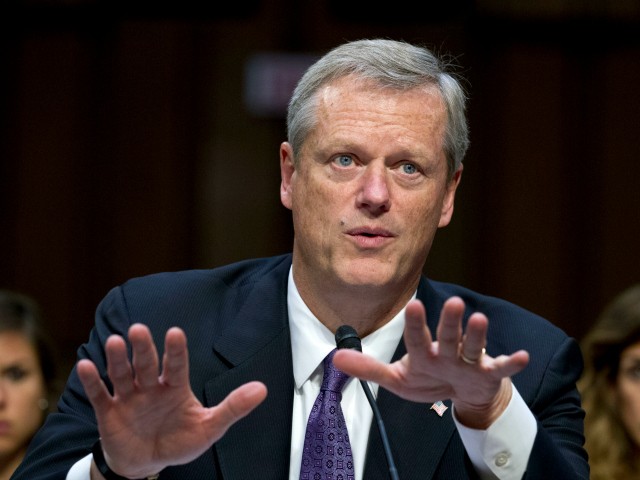Massachusetts Gov. Charlie Baker (R) announced another wave of restrictions taking effect prior to New Year’s, including a ban on gatherings over ten, with the restriction extending to “private homes.”
Baker announced the latest set of restrictions Tuesday, which will go into effect on Saturday, December 26 — the day after Christmas.
“We would like people to spend the next couple of weeks, between Christmas and sort of the week after New Year’s, as regularly as they possibly can just with those they live with,” Baker said.
The new restrictions revise capacity limits to ten people indoors and 25 outdoors, applying to both “private homes and event venues and public spaces,” per the order.
The order also limits restaurants to 25 percent of seating capacity. Similarly, places of worship, casinos, office spaces, retailers, libraries, arcades, gyms, museums, movie theaters, and close contact personal services will all be capped at 25 percent capacity as well.
According to Massachusetts Secretary of Health and Human Services Marylou Sudders, hospitals must postpone the bulk of elective surgeries as well.
The order goes into effect December 26 and expires January 10 at noon.
“Here we are coming into this second big season with respect to the holiday, and we think it’s critically important for people to hear us when we say people really need to spend this in a very conservative and cautious and careful way,” the governor stated.
The Bay State reported 3,293 new cases of the Wuhan virus Tuesday, bringing the statewide cumulative total to 331,174.
Dr. Anthony Fauci is among the high profile figures who have called on Americans to refrain from gathering with people outside of their immediate household for the holidays.
“Stay at home as much as you can, keep your interactions to the extent possible to members of the same household,” Fauci told the Washington Post last week.
“This cannot be business as usual this Christmas because we’re already in a very difficult situation, and we’re going to make it worse, if we don’t do something about it,” the director of the National Institute of Allergy and Infectious Diseases added.
